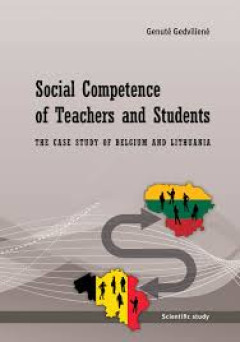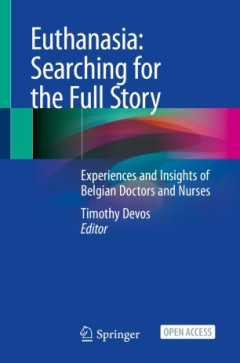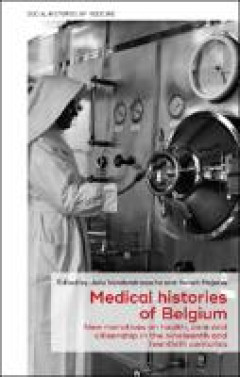Ditapis dengan

Euthanasia :searching for the full story : experiences and insights of Belgia…
This open access book has been written by ten Belgian health care professionals, nurses, university professors and doctors specializing in palliative care and ethicists who, together, raise questions concerning the practice of euthanasia. They share their experiences and reflections born out of their confrontation with requests for euthanasia and end-of-life support in a country where euthanas…
- Edisi
- -
- ISBN/ISSN
- 9783030567958
- Deskripsi Fisik
- xx, 110p. : ill.
- Judul Seri
- -
- No. Panggil
- 179.7 EUT e

The civilising offensive :social and educational reform in 19th-century Belgium
"This volume offers a multifaceted selection of studies on 19th-century Belgian reformers and initiatives they instigated to solve the ‘social question’ by ‘civilising’ and moralising the lower classes. Around 1850 Belgium was continental Europe’s most heavily industrialised state. From the mid-century until the Belle Époque many international social reform associations were based in…
- Edisi
- -
- ISBN/ISSN
- 9783110581546
- Deskripsi Fisik
- VI, 238 p.
- Judul Seri
- -
- No. Panggil
- 306.09493 CIV c

Social competence of teachers and students:the case study of Belgium and Lith…
In this study is presented a theoretical concept of social competence and practical quantitative international research conducted in Belgium and Lithuania. Comparative analysis of research was done between Belgium and Lithuania students and teachers’ in communication and cooperation skills. In this study is presented detailed investigations.
- Edisi
- -
- ISBN/ISSN
- 9789955127918
- Deskripsi Fisik
- 160p.: ill.
- Judul Seri
- -
- No. Panggil
- 371.102 GED s

Euthanasia :searching for the full story : experiences and insights of Belgia…
This open access book has been written by ten Belgian health care professionals, nurses, university professors and doctors specializing in palliative care and ethicists who, together, raise questions concerning the practice of euthanasia. They share their experiences and reflections born out of their confrontation with requests for euthanasia and end-of-life support in a country where euthanas…
- Edisi
- -
- ISBN/ISSN
- 9783030567958
- Deskripsi Fisik
- xx, 110p. : ill.
- Judul Seri
- -
- No. Panggil
- 179.7 EUT e

Medical histories of Belgium :new narratives on health, care and citizenship …
This edited volume offers the first comprehensive historical overview of the Belgian medical field in the nineteenth and twentieth centuries. Its chapters develop narratives that go beyond traditional representations of medicine in national overviews, which have focused mostly on stateprofession interactions. Instead, the chapters bring more complex histories of health, care and citizenship. Th…
- Edisi
- -
- ISBN/ISSN
- 9781526151087
- Deskripsi Fisik
- xiv, 400 p. : ill.
- Judul Seri
- -
- No. Panggil
- 610.9493 VAN m

Diaspora, Food And Identity; Nigerian Migrants in Belgium
This book examines the connection between food and identity in the Nigerian diaspora community in Belgium. Encounters between people from different cultures do not lead to a simple adaptation of the diet, but usually give rise to some kind of fusion of new and indigenous food habits. The author questions the relationship between what Nigerian migrants in the diaspora eat, their self-perception …
- Edisi
- -
- ISBN/ISSN
- 9782807602120
- Deskripsi Fisik
- -
- Judul Seri
- -
- No. Panggil
- -
 Karya Umum
Karya Umum  Filsafat
Filsafat  Agama
Agama  Ilmu-ilmu Sosial
Ilmu-ilmu Sosial  Bahasa
Bahasa  Ilmu-ilmu Murni
Ilmu-ilmu Murni  Ilmu-ilmu Terapan
Ilmu-ilmu Terapan  Kesenian, Hiburan, dan Olahraga
Kesenian, Hiburan, dan Olahraga  Kesusastraan
Kesusastraan  Geografi dan Sejarah
Geografi dan Sejarah